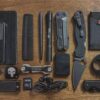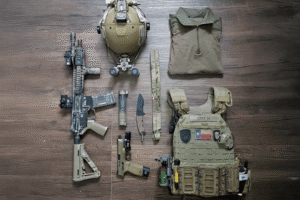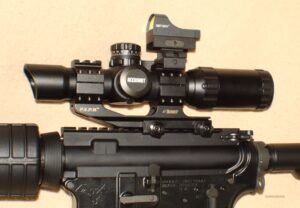
Personal safety is a priority for everyone—and choosing the right self-defense gadget can boost confidence and give you a measurable edge in an emergency. Buying online in Pakistan is convenient, but it also raises questions about legality, effectiveness, and authenticity. This guide walks you through a practical checklist so you can choose a device that’s legal, reliable, easy to use, and suited to your real needs.
1. Be clear about the purpose
Start by asking: why do I need this device?
- Deterrence: Choose loud personal alarms or visible tools that discourage attackers.
- Escape: Look for devices that buy you time to run—pepper spray, compact stun devices, or tactical flashlights.
- Alerting help: Devices with built-in SOS signals, GPS, or mobile connectivity are useful for lone workers and travelers.
- Everyday carry: If you need something small and legal to carry daily, pocket alarms and compact sprays are ideal.
Match the gadget to the most likely scenarios you face—commute, campus, late shifts, neighborhood walks—and prioritize features accordingly.
2. Check legal status in Pakistan
Before you buy, verify whether the item is legally permitted.
- Pepper sprays and personal alarms are generally allowed, but rules can vary by province and local authorities.
- Stun guns, tasers, and items that resemble firearms may face restrictions or require permits.
- Always check the latest guidance from local law enforcement or consult a legal advisor if you’re unsure.
Buying a prohibited item can create more risk than protection. When in doubt, choose non-lethal, clearly defensive options.
3. Prioritize simplicity and speed of use
In high-stress situations you will not have time for complexes.
- One-hand activation: Devices that can be used with one hand and without fine motor skills are better.
- Quick deployment: Look for flip-top pepper sprays, single-pull alarms, or lights with an easy push button.
- Failsafe features: Ensure there’s a safety lock to prevent accidental discharge but not so fiddly that it delays use.
Test the mechanism at home (without discharging harmful agents) to build muscle memory.
4. Evaluate effectiveness criteria
Not all gadgets are built equal. Compare specifications and real-world performance.
- Pepper spray: Check concentration (OC %), spray pattern (stream vs. fog), effective range (meters), and number of bursts. Stream sprays reduce cross-contamination risk; fog covers more area.
- Stun devices: Look at voltage and amperage ratings, but remember higher numbers on marketing pages don’t always translate to better stopping power. Build quality and electrode design matter.
- Alarms: Aim for at least 120 dB for a deterrent effect; consider models with SOS strobe lights.
- Flashlights: Lumens, beam distance, and durable construction are key. A tactical flashlight with a strike bezel can double as an improvised defensive tool.
Read independent reviews or test reports rather than relying on seller copy.
5. Verify authenticity and supplier reputation
When buying online, seller credibility is crucial.
- Authorized dealers: Prefer local sellers or known distributors who provide warranties and service.
- Customer reviews: Look beyond star ratings—read recent reviews for comments about build quality, shipping, and after-sales support.
- Return policy & warranty: Clear return terms and a warranty period indicate the seller stands behind the product.
- Avoid suspiciously cheap offers: Very low prices can mean counterfeit or expired goods.
If possible, buy from sellers who share product specs, certifications, and testing information.
6. Consider size, weight, and concealability
A device is only useful if you carry it.
- Everyday carry: Small alarms or sprays that fit in pockets or keychains are easier to keep on you.
- Work or uniform: If you wear a uniform or carry a backpack, choose products that clip securely or fit a dedicated pouch.
- Comfort: Test how the device feels in a pocket—sharp edges or bulk will discourage consistent carrying.
Balance concealability with accessibility. Something you never carry is worthless.
7. Power, maintenance, and shelf life
Reliability depends on power and upkeep.
- Batteries: Rechargeable units are convenient but ensure you can top them up easily. For disposable batteries, keep spares.
- Expiry dates: Sprays and chemical agents have shelf lives—check manufacturing dates and replacement recommendations.
- Water and shock resistance: Gadgets exposed to rain or rough use should meet minimum IP ratings and be built solidly.
- Routine checks: Make a habit of monthly inspections—test alarms, charge batteries, and verify seals.
A maintained device is a trustworthy device.
8. Training and familiarization
Owning a gadget is not the same as using it well.
- Practice drills: Simulate quick draws and activations until the motion becomes instinctive.
- Legal training: Know what you are allowed to use and how to document self-defense if an incident occurs.
- De-escalation skills: A gadget is part of a wider safety strategy; verbal assertiveness and escape planning reduce reliance on force.
Local self-defense workshops or online tutorials can be valuable.
9. Review privacy and connectivity features
Some modern gadgets connect to phones or cloud services.
- Privacy implications: GPS trackers and connected panic buttons share location data—understand how data is stored and who can access it.
- Network dependency: Devices that require mobile coverage may fail in remote areas. Have a non-connected backup option like a loud alarm.
Choose connected devices only if you accept the data and service model.
10. Budget and value
Price is important, but value matters more.
- Low cost = higher risk: Very cheap devices often skimp on quality.
- Mid-range sweet spot: You can find reputable alarms, sprays, and lights at reasonable prices.
- Invest where it counts: For people at higher risk, investing in proven, durable gear and training is justified.
Factor in long-term replacement costs like batteries and expiry items.
Final checklist (quick)
- Purpose defined (deterrence, escape, alert).
- Legal status verified locally.
- Simple, one-hand operation.
- Verified effectiveness specs and independent reviews.
- Reputable seller, warranty and return policy present.
- Comfortable to carry daily.
- Power source, maintenance plan, and expiry checks in place.
- Training plan and de-escalation practice.
- Privacy and connectivity assessed (if applicable).
- The budget aligns with quality and long-term needs.
Choosing the right self-defense gadget online in Pakistan is a balance of legality, usability, and trust. Take a step back to map your real risks, prioritize ease of use and legitimacy, and practice regularly.








